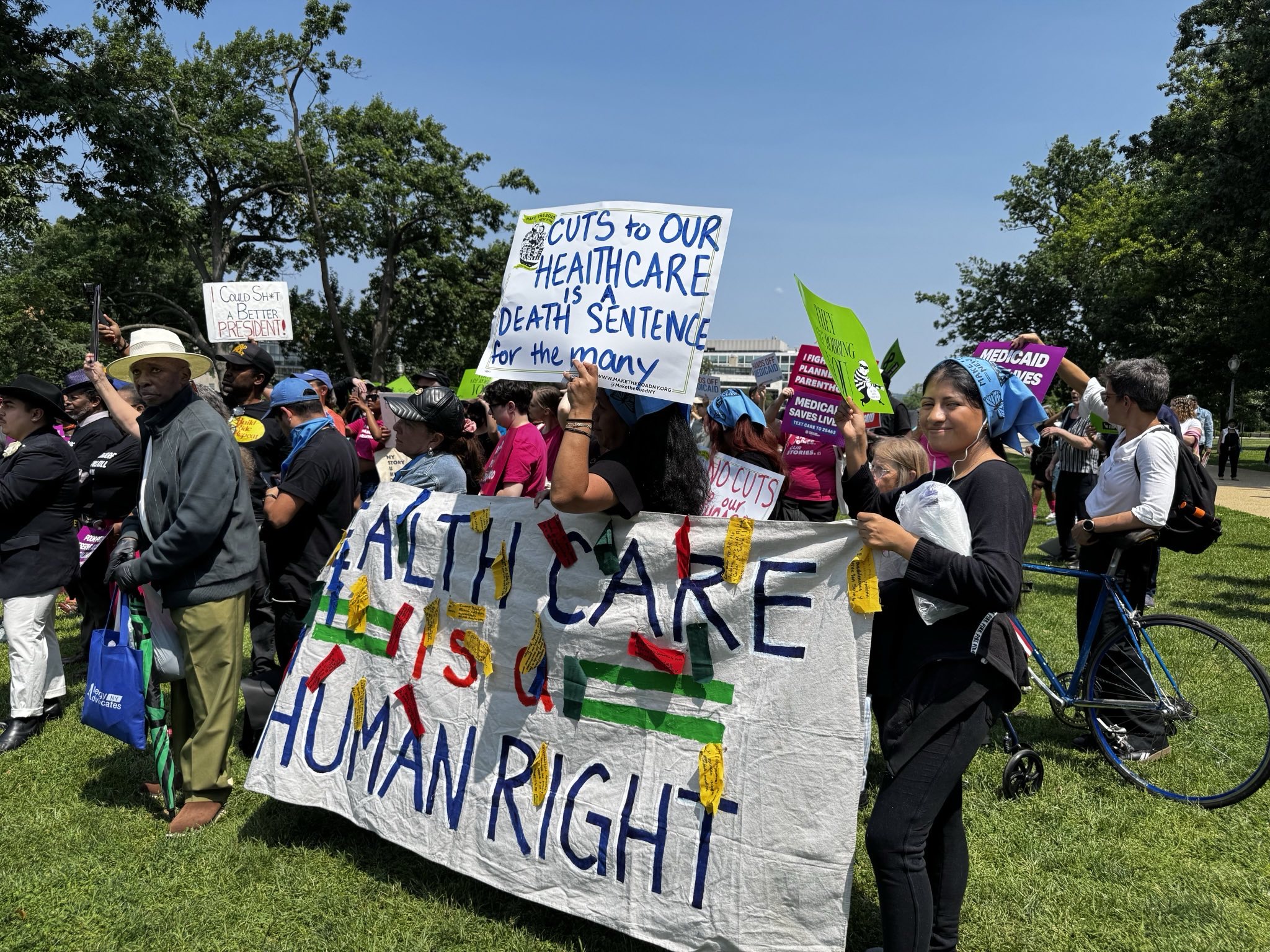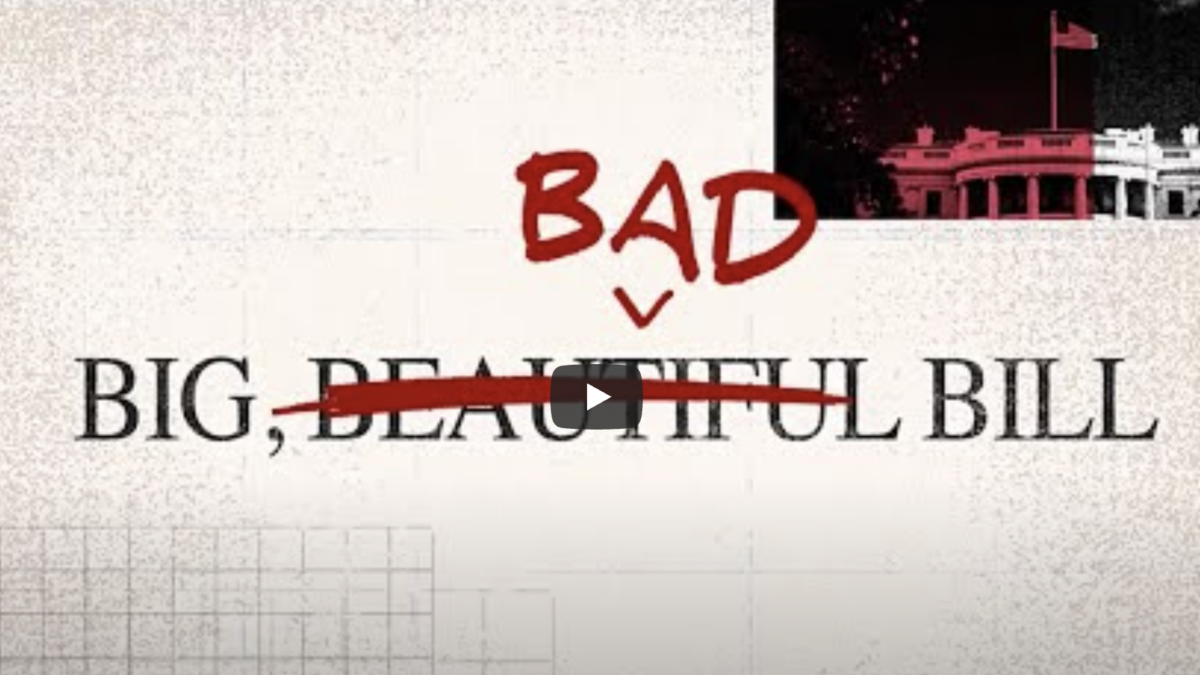The Big Bad Bill: What You Could Lose Overnight
Behind the slogans, the reconciliation bill is a direct attack on our care. Imagine waking up to find your coverage gone, your hospital closed, or your medical bills soaring. That’s what’s at stake.
When politicians promote a bill as supposedly “beautiful,” it’s worth asking for whom? Behind the flashy slogans, the “Big Beautiful Bill” is a direct transfer of wealth from working families to the ultra-rich. The top 10% would gain $12,000 a year; the bottom 50% would lose thousands of dollars per year. And our health and financial security is on the chopping block to pay for their gains.
Imagine waking up and learning your coverage is gone. Your hospital is closed. Your prescription now costs hundreds more. That’s what this bill puts on the line. Here are five ways the reconciliation bill threatens our care, our costs, and our communities:
1. Imagine health care costs soaring overnight
Imagine waking up to find your premiums have doubled and your out-of-pocket costs are through the roof.
This bill would leave 16 million people without coverage, driving up costs for everyone. Families would face higher premiums and out-of-pocket expenses, undoing years of progress. No one would be immune – the financial burden would ripple through insured and uninsured populations alike.
2. Imagine one illness wiping out your savings
Imagine getting a cancer diagnosis — and knowing you’ll have to drain your bank account to afford treatment.
Without affordable coverage, medical debt will explode. Millions of families would face impossible choices: forego care they need or go into debt. This bill would leave countless people – especially those managing chronic conditions or caring for loved ones – just one diagnosis away from financial ruin.
3. Imagine trying to sign up for health insurance—and hitting a brick wall
Imagine trying to enroll for coverage only to discover you no longer qualify — and can’t afford what’s left.
This bill would strip away Medicaid and Marketplace coverage for millions, especially in states like Texas, Florida, Georgia, and California. It would gut the supports that help people enroll and stay covered. Millions would wake up to find their insurance coverage gone.
4. Imagine driving hours to reach the nearest emergency room
Imagine waking up to news that your local hospital is shutting its doors, forcing you to travel for basic care.
Deep Medicaid cuts would force states into impossible choices: cut health services, restrict eligibility, or gut funding for schools, infrastructure, and public safety. Rural hospitals would close, leaving communities with shuttered ERs and fewer care options. And when hospitals close, local jobs vanish and entire economies suffer.
5. Imagine profiteers cashing in while families lose care
Imagine losing your coverage while CEOs and shareholders pocket billions in tax breaks.
At its core, this bill is a massive giveaway to corporations and the ultra-wealthy – funded by terminating care for millions of people. The latest analyses from the non-partisan Congressional Budget Office (CBO) makes it plain:
- The top 10% would gain an average of $12,000 a year.
- The poorest 10% would lose $1,600 a year.
- Half of all households would end up worse off.
This is not a shared sacrifice – it’s a fiscal transfer from working families to the wealthy. And the health care cuts are how they pay for it: by adding red tape and harmful work requirements, kicking people off of Medicaid, and slashing affordable coverage. That’s not health policy – it’s corporate welfare dressed up as reform.

What’s at Stake?
Behind every number is a person. A parent caring for a child with disabilities. An older adult relying on long-term care. A family choosing between prescriptions and rent.
Now, with federal cuts looming, states face impossible choices – keeping people covered or funding schools and emergency responders. That’s not a choice any family should wake up to.
Stay Informed. Spread the Word.
Every one of us has something to lose if this bill passes. There’s nothing beautiful about this big, bad bill. It’s not about health — it’s about wealth. Let’s make sure every voter and every policymaker knows it.
